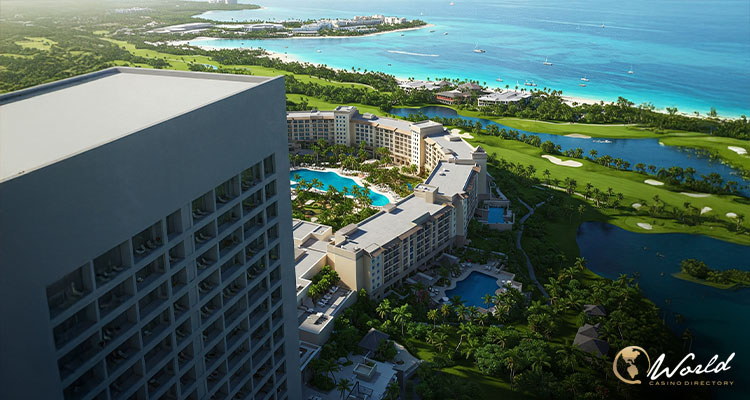The long-anticipated revival of the Grand Lucayan Resort has taken a significant leap forward, as Concord Wilshire Capital (CWC) signed a Heads of Agreement with the Government of The Bahamas to invest $827 million in the iconic Freeport property. The agreement, finalized on May 14 at the resort, marks a pivotal moment for Grand Bahama’s tourism sector and economic future.
Comprehensive resort village to drive economic growth:
CWC’s ambitious redevelopment plan aims to transform the 56-acre beachfront site into a large-scale, integrated resort village designed to attract a wide range of visitors. Core features include a new 350-room branded hotel, a 25,000-square-foot casino, a 120-unit timeshare complex, a Greg Norman-designed golf course, and a 36-acre cruise port capable of accommodating up to 10,000 passengers daily.
The project will also incorporate existing assets like the Port Lucaya Marina and Grand Bahama Yacht Club, in partnership with Bahamaland Investments. The 120,000-square-foot Port Lucaya Marketplace will be integrated into the development, further enhancing visitor experiences and supporting local businesses.
Nate Sirang, president of Concord Wilshire, called the signing a “powerful economic resort engine” and emphasized the commitment to involving Bahamian contractors, professionals, and businesses throughout the buildout. The project is expected to create over 3,000 jobs—1,320 during construction and approximately 1,750 permanent positions once fully operational. Of these, the hotel component alone will provide more than 450 jobs, with additional employment opportunities generated by the casino, timeshares, marina, cruise operations, and ancillary services.
Government’s vision: putting Bahamians first:
As Eye Witness News reports, Prime Minister Philip Davis hailed the agreement as a breakthrough for Grand Bahama, highlighting the scale and potential of the investment to shift the local economy and create broad opportunities. “It’s time to turn the page on hardship, to leave heartbreak behind. It’s a time for renewal, a time for new opportunities, a time for new beginnings,” Davis said during the ceremony.
He detailed the project’s extensive offerings, including three new hotel buildings, family attractions, water parks, retail and dining venues, music venues, over-water cabanas, beach clubs, and a 16-slip mega-yacht marina. The revitalized resort village aims to restore confidence and momentum to the island’s tourism industry.
The government has stipulated that at least 80 percent of the workforce for the redevelopment must be Bahamian, reflecting the administration’s focus on ensuring the benefits reach local residents. A compensation and job recall plan is also in place for current Grand Lucayan employees, many of whom have weathered years of uncertainty following the resort’s closure after Hurricane Matthew in 2016.
The Grand Lucayan Resort has endured a challenging decade marked by natural disasters and stalled redevelopment attempts. Purchased by the government in 2018 for $65 million from Hutchison Whampoa, efforts to privatize and revive the property faced setbacks, including a canceled deal with Royal Caribbean and ITM Group in 2021 and a failed agreement with Electra America Hospitality Ltd. in 2022.
Deputy Prime Minister Chester Cooper described the process of finding the right buyer as long and arduous but expressed optimism that the new deal will herald positive change. The government’s commitment to maintaining the property throughout the years, with monthly upkeep costs of $1.2 million, was crucial in attracting this significant investment.
The redevelopment is part of a broader strategy to strengthen Grand Bahama’s tourism ecosystem, alongside infrastructure improvements such as a new airport, expanded cruise port facilities, road and water system upgrades, and support for small businesses and workforce training.
Concord Wilshire plans to commence demolition and site preparation within 90 days of receiving all necessary regulatory approvals. While the entire redevelopment will unfold over several years, officials anticipate substantial economic activity and job creation beginning within the first year.
Project executives stress the importance of integrating local culture, cuisine, and entertainment into the resort experience, even as international cruise and entertainment operators become involved. The development will link seamlessly with the nearby Port Lucaya Marketplace and marina district, enhancing visitor stay duration and spending.
With this substantial investment, Grand Bahama is poised to regain its standing as a leading Caribbean tourism destination, promising wide-ranging benefits for the island’s economy and residents.


